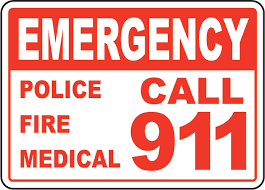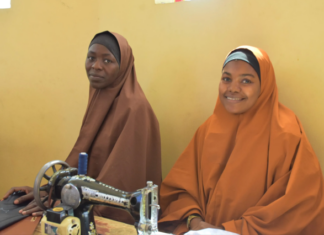It was shocking and agonising as Nigerians read and watched with distress the news that the Kano State Resident Electoral Commissioner, Abdullahi Minkaila; his wife, Zulaiha; and their two children, Aisha and Asmau, died in an inferno that engulfed their home in the early hours of Friday, April 13. The sad news sent shock waves across the length and breadth of this country, and the question on many lips was: where were the staff of the Kano State Fire Service when they were contacted? This brings to the front burner the fact that in the 774 local government areas of the federation, only 244 fire stations can be relied on in situations of emergencies. I mean 244 fire service stations covering the entire federation. Amazing, isn’t it?
Some states have no fire stations. Most of the states have two or three ill-equipped and poorly-manned fire stations. Most firemen in Nigeria have only basic defensive fire-fighting know-how. Majority of the fire stations across the country are accommodated within dilapidated buildings, and their equipment and appliances are very few.
As things stand today, fire outbreaks can hardly be contained because, as a nation, we have never been serious with how to deal with fire emergencies. The situation is compounded by the fact that emergency numbers, where they exist, are usually 11-digit mobile phone numbers that are hardly remembered in emergency situations. This unfortunate situation would be greatly improved, and victims promptly helped if we can shorten our emergency number to just three digits. This can be easily memorised by citizens, as against the present 11 digits used to request and receive emergency aid. If we were operating a three-digit national emergency number system, our girls could have remembered it easily and one of them could have called and, who knows, they could have been home today.
This is why the National Assembly should, as a matter of urgency, pass a bill that enables the use of three digits emergency number to shorten the time required for citizens to request and receive emergency services from relevant government agencies.
Emergency telephone number is always a special case in any country’s telephone number plan. The system should be set up so that once a call is made to an emergency telephone number, it must be answered. Should the caller abandon the call, the line should still be held until the emergency services answer and releases the call. An emergency telephone number call should be answered by either a telephone operator or an emergency service dispatcher. The nature of the emergency (police, fire, medical) is then determined. If the call has been answered by a telephone operator, they then connect the call to the appropriate emergency service that then dispatches the appropriate help. In the case that multiple services would be needed on a call, the most urgent need would immediately be determined, with other services alerted and called in, as may be needed. Emergency dispatchers should be trained to control the call in order to provide help in an appropriate manner; they can be assisted by computer-aided call handling systems.
National Assembly members should appreciate and declare that the establishment of a uniform nationwide emergency number is now a matter of national concern and interest, and enact an act to be known and cited as the “Emergency Telephone System Act”. The purpose is to establish the number “112” or any three digit number as the primary emergency telephone number for use in the entire federation, and to encourage units of state government and combinations of such units to develop and improve emergency communication procedures and facilities in a manner that enhances quick respond to any person seeking police, fire, medical, rescue, and other emergency services.
The Nigerian Communication Commission (NCC) should require networks to route every mobile phone and payphone 911 call to an emergency service call centre. Such call centres should be located in each of the six geo-political zones of the federation and re-route as appropriate. Emergency responders should be able to better locate callers who dial 112 or 911 on their cell phones.
The bill for this act should be given accelerated hearing as we all agree that the protection of lives and property of the citizens is the hallmark of good governance. The new agenda of “change”, no doubt, should possess the robust political will for the establishment of “performance-based emergency agencies” in all the states of the federation, with their “operational preparedness” harmonised by the appropriate federal government agency. Disasters, both natural and man-made, will continue to place enormous and extraordinary burden on our communities, until government develops a performance-based system that can deal with our day-to-day emergencies. The system should define the basic objectives of government policies and procedures that should be used to achieve these goals. It must also tie together the activities of all three tiers of government, and coordinate the operations of various public and private organisations to provide the most effective and efficient utilisation of available resources in fighting emergencies. It should guide official activities before, during and after each disaster situation.
Let me cease this opportunity to appeal to Channels Television which has clearly shown visible interest in promoting acceptable templates in Project Nigeria to continue to expose our current inadequacies in responding to emergencies by visiting the stations across the federation, encourage citizens to send photographs of existing fire stations and equipment across the country, so that Nigerians and our governments – federal, state and local – can fully appreciate the degree of decay in a sensitive and strategic sector saddled with the enormous responsibility of protecting life and property in this country. If media men can get present and past governors interviewed on the fire-security situation in their respective ‘domain’, the sector would immensely benefit from such intervention. This increasingly agonising wanton destruction of our citizens lives and property, as happened to the late Independent National Electoral Commission (INEC) commissioner in Kano and his family must be halted and the vital lessons learnt by all of us.
• Engr. Ogbogoh, Integrated Risks and Disaster Management Consultant, wrote from Abuja.













